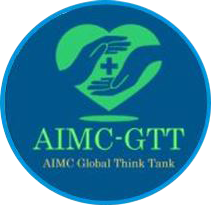Abstract. Background: The vascular endothelial growth factor (VEGF) pathway plays an important role in growth and progression of human cancer, including colorectal carcinomas (CRC). The key mediators of VEGF signaling are VEGFR1, VEGFR2, and VEGFR3, part of a family of related receptor tyrosine kinases. The relative expression, activity, or interplay among these receptors may determine the response of CRC
patients to anti-angiogenic therapies. Materials and Methods: We developed technically sound immunohistochemical (IHC) assays to quantify VEGFR1, 2 and 3, and using a well-annotated CRC tissue microarray (TMA), we carried out comprehensive comparative evaluation of the three VEGFRs in archival primary CRC tissues (n=84). For each TMA core, tumor cell VEGFR1 expression was reported as H-score (range=0-300); vascular VEGFR2/VEGFR3 expression was manually scored as the number of receptor-positive tumor stromal vessels. Each case was defined as VEGFR1/ VEGFR2/VEGFR3-negative, low,
medium or high. Results: Based on the differential expression of the three VEGFRs, eight VEGFR staining profiles were observed: Triple VEGFR positive (n=12, 14%), VEGFR1 predominant (n=17, 20%), VEGFR2 predominant (n=7, 8%), VEGFR3 predominant (n=1, 1%), VEGFR1/2 predominant (n=39, 46%), VEGFR1/3 predominant (n=2, 2%), VEGFR2/3 predominant (n=3, 4%), and triple-VEGFR-negative (n=3, 4%).
Conclusion: Herein we demonstrated heterogeneity of expression of VEGFRs in human CRC stromal vessels and tumor cells. The observed VEGFR expression-based subsets of human CRCs may
reflect differences in biology of pathologic angiogenesis in primary CRC tissues. Furthermore, the heterogeneity of expression of VEGFRs unraveled in this analysis merits independent validation in larger cohorts of primary and metastatic human CRC tissues and in pertinent experimental models treated with various anti-angiogenic therapies.
Angiogenesis is the process of new blood vessel formation from a pre-existing vascular bed, and is essential for the growth of primary tumors and their metastases. Successful treatment of established human tumors may not only require inhibition of further angiogenesis but also regression of the existing tumor vessels to reduce the existing tumor mass (1). Biologically, tumor angiogenesis is a highly regulated and complex process involving a variety of pro-angiogenic (VEGFs, fibroblast growth factors, platelet-derived growth factors, insulin-like growth factors and transforming growth factors) and anti-angiogenic
(thrmobospondin-1, angiostatin and endostatin) factors (2). Vascular endothelial growth factor-A (VEGF-A) plays important roles in vascular development and in diseases involving irregular growth of blood vessels. VEGF-A is also involved in the development of lymphatic vessels and diseaserelated
angiogenesis. While VEGF-A is required to sustain newly-formed (immature) blood vessels, this survival factor is dispensable for the mature vasculature (3). Pathological angiogenic and lymphangiogenic signaling is largely mediated by three vascular endothelial growth factor receptors (VEGFRs) 1, 2 and 3. Among these, VEGFR2 is the predominant mediator of VEGF-A signaling to regulate angiogenesis. Interaction between VEGF-A and VEGFR2 results in activation of a number of intracellular signals that
result in endothelial cell survival, proliferation, migration, differentiation and increased vascular permeability (4-6). VEGFR1 is a receptor for VEGF-A in addition to VEGF-B and placental growth factor and is a potent positive regulator of physiologic and developmental angiogenesis and, like VEGFR2, is also thought to be important for endothelial cell migration and differentiation (7, 8). VEGFR1 has been shown to be present and functional on CRC cells and its activation by VEGF ligands can activate processes involved in tumor progression and metastases (9). VEGFR3 binds with highest affinity to VEGF-C and VEGF-D and is a mediator of lymphangiogenesis. Its expression is largely restricted to lymphatic vessel and endothelial tip cells and has been associated with the dissemination of tumor cells to regional
lymph nodes (10-12). Of the three VEGFRs, VEGFR2 is globally expressed by vascular endothelial cells, while VEGFR1 and VEGFR3 expression is restricted to vascular endothelial cells in distinct locations (13).
This article is freely accessible online.
Correspondence to: Aejaz Nasir, MD, MPhil, FCAP, Eli Lilly and
Company, Lilly Corporate Center, DC0424, Indianapolis, IN 46285,
U.S.A. Tel: +13176515535, e-mail: nasirae@lilly.com
Key Words: VEGFR, VEGFR1, VEGFR2, VEGFR3, colorectal
cancer, IHC.
